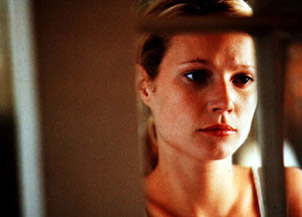Viking Night: Se7en
By Bruce Hall
April 20, 2010
There are many reasons that certain films achieve what we call "cult" status, but one of them is that they tend to deliver their message in subversive or controversial ways that don't appeal to everyone. While it's true that most people do not like to work for their entertainment, is it possible that even the most unusual films can have something to offer everyone? When I was in college, a group of friends and I would meet regularly to ponder this very question. Beginning with Erik the Viking, we gathered once a week to watch and discuss a different cult classic, but we decided to keep the Viking theme. Now, I'll be working without a turkey leg or a goblet of mead, but with each installment of Viking Night I still seek to examine the same question: Can a film with such limited appeal still speak to us all?
Among the films that I’ve covered here, Se7en bears the distinction of actually having been a critical and financial success – not to mention very controversial. Most of the people you know have probably seen it, and most of the people who have seen it tend to have starkly formed opinions about it. But what truly makes a film enduring is often when there exists a critical mass of people who are willing to watch it repeatedly over the years.
Se7en has a reputation for being a difficult film to watch, and it comes by this standing honestly. Dark, gritty, atmospheric and often bloody, Se7en is not for the faint of heart. But there’s hidden buoyancy to the movie that prevents it from being quite as depressing as it wants to be; when you break it down to its fundamentals, Se7en is almost laughably derivative. There is a diabolically theatrical serial killer who always seems one step ahead of his pursuers. There’s the jaded, impossibly resourceful police detective on the cusp of retirement, coupled with a hotheaded partner prone to fisticuffs and foul language. There are not so subtle leaps of logic, plot contrivances large enough to earn their own ZIP code and if you’re Fox Mulder, just a hint of mid-90s anti-government paranoia thrown in for good measure. But what holds it all together and keeps your mind largely away from these things is a rare and happy convergence of talent.
Director David Fincher has a flair for mining dreary, pedestrian source material for unexpected depth. His cast members all turn in pitch perfect performances, adding dimension to what would otherwise be bland caricatures. And writer Andrew Walker finds himself fortunate to see his work in such good hands. What could easily have been just another hackneyed rip-off of Silence of the Lambs has instead become an iconic genre film in its own right, spawning its own cottage industry of imitators.
Se7en takes place in an environment that could easily have been Blade Runner’s dystopian Los Angeles, 25 years earlier. Rendered in bleak earth tones and long shadows, the unnamed city is beset by gloom and is under an almost constant deluge of rain, as though the city itself were weeping over its own sad state of affairs. As it turns out, this filthy metropolis is one of the film’s most important characters; its brooding vistas and faceless, shuffling inhabitants serve as an ominous backdrop to our lead characters and the hellish nightmare that eventually consumes them.
Continued:
1
2
3
|
|
|
|




